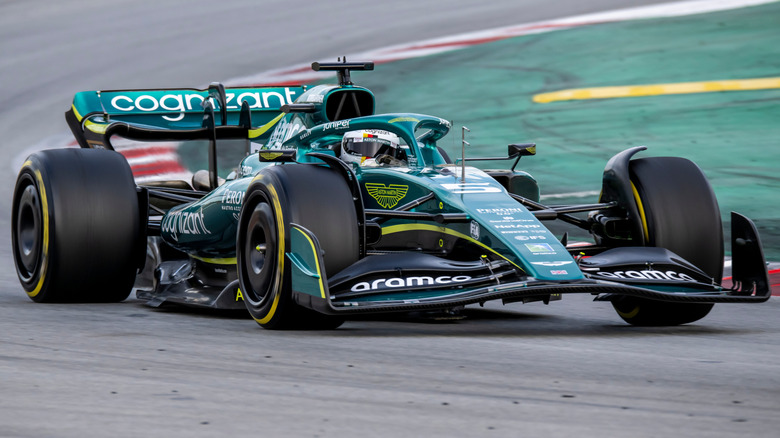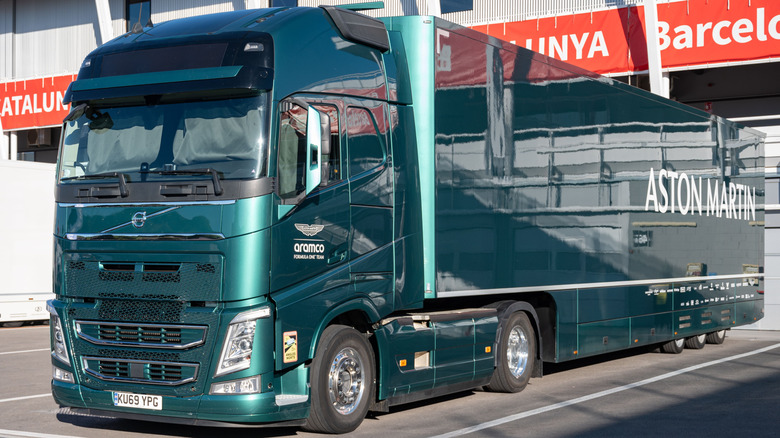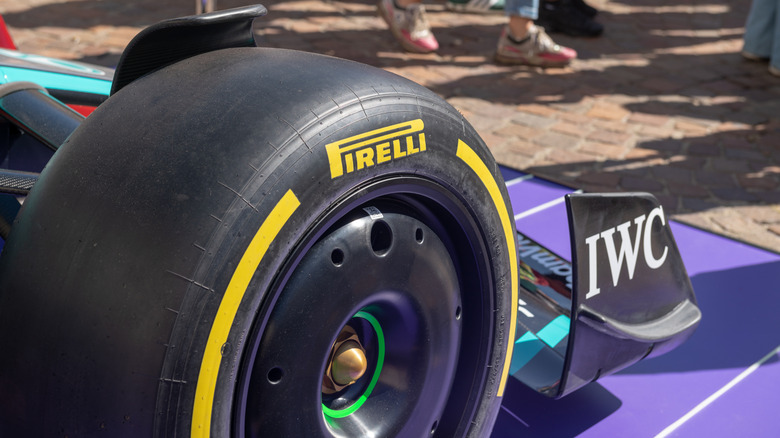
Sustainability can be a tough ask for manufacturers building a machine for a single purpose, but Formula 1's bosses are pushing constructors to save the world while going as fast as possible. In 2019, Formula 1 set a target to become carbon net zero by 2030, and the technicians across its teams and suppliers had already achieved half that goal by the end of the 2024 Formula 1 season, with a 26 percent decline in carbon emissions.
The goal of being net zero carbon is not just in the design, development,
and manufacturing of Formula 1 cars, but also in logistics, operations, and travel. While becoming carbon net zero could benefit the Formula 1 brand -- which many detractors see as a waste of resources and a rich man's sport -- the technology used by teams could, as is often the case, eventually trickle down to the road cars we drive.
For instance, beginning in 2026 all Formula 1 cars will run on an advanced sustainable fuel blend coupled with the new hybrid engine that will debut next year, technology that can be easily transferable to road cars. Former Red Bull boss Christian Horner also believed that the switch to such a fuel could pave the way to bring back V10 engines in F1, an idea which was ultimately rejected. Formula 1's feeder series, F2 and F3, have successfully run the aforementioned fuels, while former F1 driver Sebastian Vettel has been a strong supporter of it.
Read more: Every 2025 Formula 1 Livery, Ranked From Worst To Best
Sustainable Aviation Fuel And Biofuel

One of the biggest issues with Formula 1 from an environmental standpoint is the air miles that teams rack up throughout the year, which has grown significantly due to the ever-growing race calendar. The sport has a barrage of trucks and airplanes that traverse the globe, moving cars, parts, and personnel from one corner of the globe to another.
It may be a while before Formula 1 drivers share an airplane rather than fly solo on their private jets after a scrap on Sunday, but the sport seems intent on doing its part through investment in sustainable aviation fuel technology. They believe that the environmentally-friendly fuel has reduced travel emissions by at least 19 percent, and is a technology that could eventually make its way into the wider aviation industry.
While cars around the world adopted ethanol-blended fuels decades ago, Formula 1 was late to the party, only switching to E10 in 2022. However, Formula 1 is making progress in using HVO100 biofuel for its long-haul trucks that are used during the European leg of the calendar. The hydrotreated vegetable oil fuel, already commonly used in trucks in some parts of Europe, is gaining prominence, and its use in F1's trucks has resulted in an 83 percent reduction in carbon emissions.
Pirelli's Recycled Tire Technology Will Be On JLR Cars Soon

Perhaps one Formula 1 innovation that could reach our road cars sooner than the rest is the tire technology currently used on Formula 1 cars. Pirelli's FSC, or Forest Stewardship Council, certified tires promote the "responsible procurement" of rubber and ensure a lower ecological footprint. The tires, which have been in use in Formula 1 since the 2024 season, are also recycled into secondary raw materials after they are driven to their limits by Verstappen and company.
These FSC-certified tires will soon be introduced in Jaguar Land Rover cars, with Pirelli and JLR announcing earlier this year that new Range Rover models will sport specially made Pirelli P Zero tires that are FSC-certified. Initially, only vehicles with 22-inch wheels will have the tires, before they are introduced to other models in the range. The P Zero tires are made using recyclable materials, with Pirelli claiming that 70 percent of each tire is composed of recycled content.
However, the Range Rover won't be the first car with Pirelli's FSC-certified tires, as BMW's X5 xDrive45e plug-in hybrid first sported it back in 2021. The Italian tire company's FSC range has even been launched for mountain bikes, underscoring how seriously it takes its environmental consciousness.
Want more like this? Join the Jalopnik newsletter to get the latest auto news sent straight to your inbox...
Read the original article on Jalopnik.
















